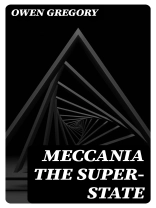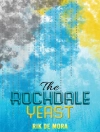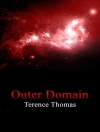In ‘Meccania the Super-State, ‘ Owen Gregory crafts a compelling narrative that explores the intricate dynamics of power, governance, and societal evolution within a dystopian framework. Through a meticulously constructed world, Gregory employs a blend of speculative fiction and political commentary to examine the moral ramifications of a super-state. His prose is rich with vivid imagery and perceptive insights, positioning the novel within the contemporary discourse on authoritarianism and globalization, drawing parallels to real-world political structures and the human condition in times of crisis. Owen Gregory, an astute observer of modern society and a seasoned writer, draws from his background in political science and his experiences in global cultures to inform his narrative. His keen interest in how political ideologies shape societal outcomes is vividly reflected in this work, which serves as both a cautionary tale and a thought-provoking analysis. Gregory’s prior literary endeavors have established him as a voice unafraid to tackle controversial and pressing issues that resonate deeply with current events. For readers seeking an intellectually stimulating journey into the complexities of statecraft and personal freedom, ‘Meccania the Super-State’ is an essential addition to the bookshelf. It challenges perceptions and invites deep reflection, making it indispensable for anyone interested in speculative fiction that boldly engages with the political landscape of our time.
A propos de l’auteur
Owen Gregory is an author enveloped in mystery, known primarily for his singular work, ‘Meccania the Super-State’. Written and published in 1918, this book presents a dystopian vision of the future—a prescient perspective on totalitarianism that predated the more famous ‘1984’ by George Orwell by some thirty years. The narrative is rooted in an expression of Gregory’s concerns about the overwhelming power of state machinery and predictive of the bleak directions politics could take. Gregory’s work contributes to the early 20th-century speculative fiction genre, focusing on satirical critiques of society’s political and social structures. ‘Meccania the Super-State’ is an exemplar case of early dystopian literature, drawing a picture of a totalitarian state ruled by rigid schedules, omnipresent surveillance, and a subdued citizenry. Not much is known about Gregory’s life, which makes him an enigmatic figure in literary history. He has, however, left an indelible mark on the genre with his contributions, influencing later dystopian writers. Gregory’s unique literary style, combining detailed world-building with incisive political commentary, identifies him as a noteworthy figure in the canon of English literature, particularly in the context of the early development of the dystopian narrative.












